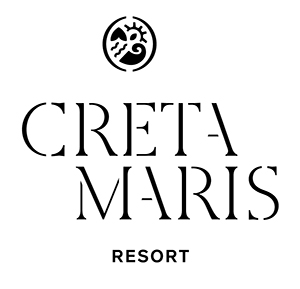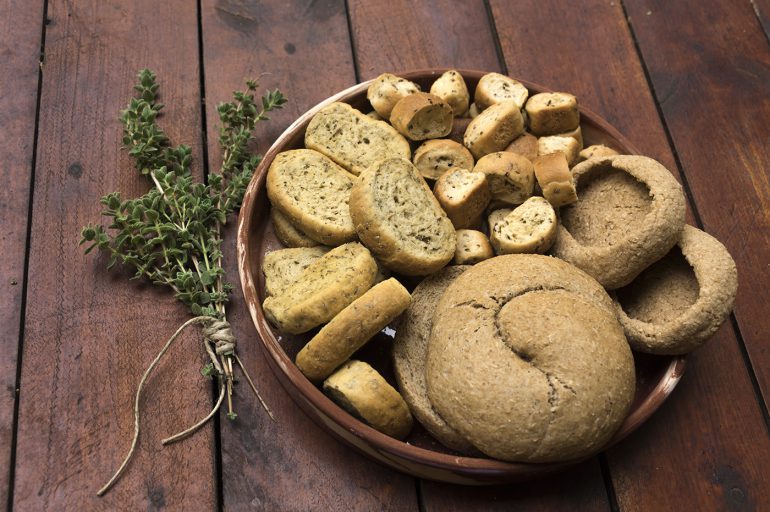Either round shaped like donuts without holes (called kouloura), or sliced in thick oblong pieces (called dakos), Cretan paximadi (rusk) comes in various shapes and sizes and is present almost everywhere in Cretan cuisine, which is considered to have formed what is called Mediterranean diet.
Once a peasant food, paximadi has nowadays seen an astonishing revival. Twice-baked, once for the initial loaf, then cut in slices and baked again until it hardens (since all the moisture is gone), rusks can be made with almost any type of flour and even with any combination of flours you can think of. Traditionally, wheat, rye, barley, carob and chickpea flour are among the types used to make rusks. Its practicality, since being twice baked these rusks can be preserved for long periods of time without losing their quality, along with its nutritional benefits have made it popular since antiquity.
The origins of rusk can be traced in ancient times. Aristotle and Hippocrates referred to it as dipyros or dipyritos artos, which literally means twice baked bread. Later, rusks acquired the name paximadia in homage to Paxamus, a Greek citizen of Rome and the author of books on cookery, among other subjects, who allegedly perfected the way rusks were made, forever connecting his name with twice baked bread rusks.
The preferred flour for Cretan paximadia is barley, which is much darker in color than wheat flour, thus making the dark, heavy and hard Cretan rusks quite an adventure for the uninitiated. The secret to consuming paximadia with safety is to soften them by briefly dipping them in water. Alternatively, you can pour some olive oil on it, add grated tomato, plenty of mizythra (a typical Cretan cheese made of sheep’s and goat’s milk) and a pinch of oregano on top to have the dish which comes in different names in the various regions of Crete, but is commonly known as dakos.
A meal without bread has always been inconceivable to a Greek, but considering the benefits of the Cretan rusk and all its delicious combinations it absolutely makes sense.



